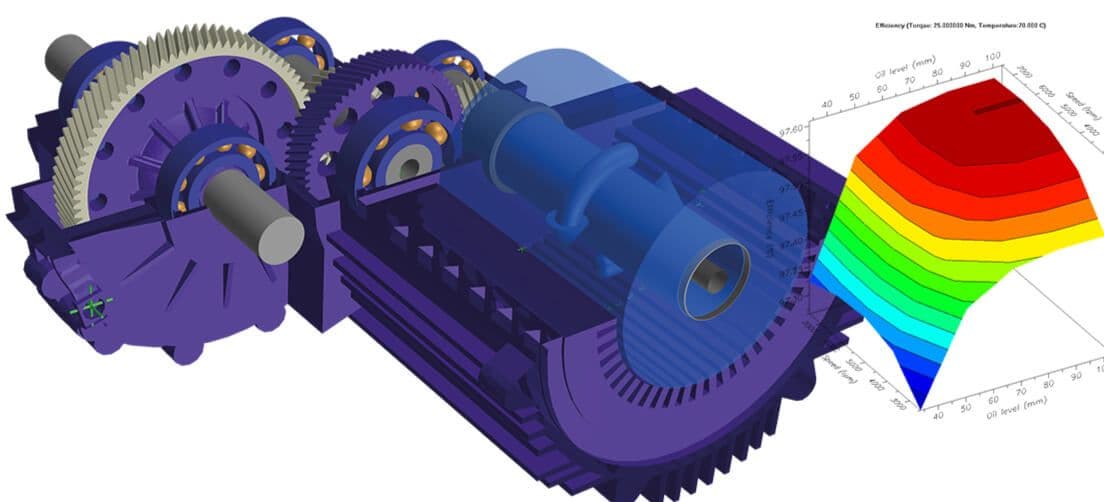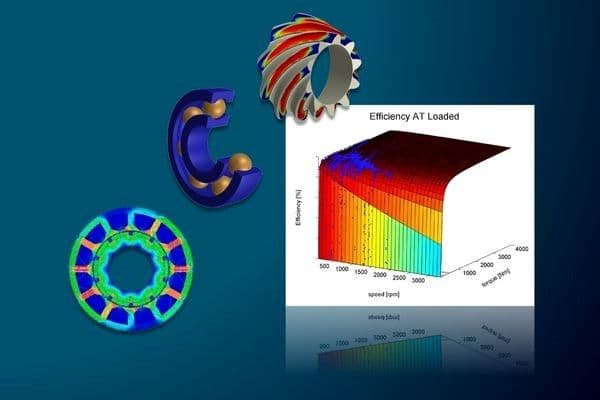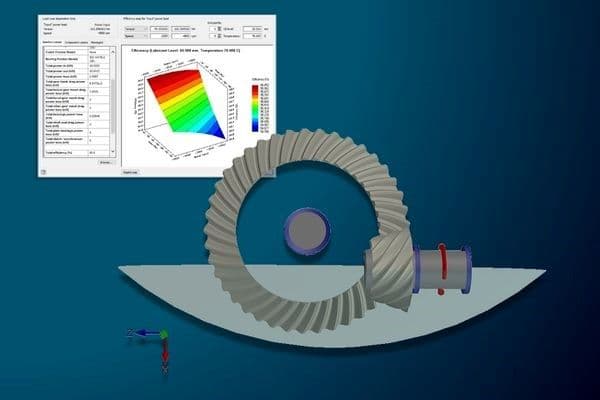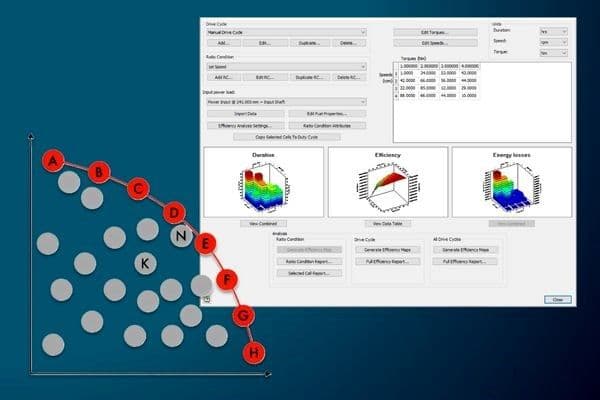Romax Energy

Create efficient drivetrain designs
With Romax Energy, efficiency is at the forefront of the drivetrain design process. Optimized with proven and accurate analysis methods that reduce reliance on physical prototyping, Romax Energy can help reduce development costs of sustainable designs. The key benefits of using Romax Energy include:
Benefits And Features
Master drivetrain efficiency prediction

Predict power losses early
Calculate transmission power loss, energy, fuel consumption and emissions using widely used industry methods and our proprietary drag models.

Account for lubricant effects
Accurately predict a lubricant’s effect on system efficiency, based on FVA345 methodology, and select or design the optimal oil.

Quickly assess parameters
Conduct parametric studies to investigate the impact of numerous variables, such as torque, speed, temperature and lubricant levels on system efficiency.
Training and Resources
Take advantage of various learning opportunities
Visit the Nexus Academy Catalog for a complete list of educational content. You can enroll for training, complete self-paced courses, register for distance learning, classroom instruction, live training events, and download or print your completion certificate.

Dive into our documentation to explore the full potential of our product offerings
Your ultimate resource for practical guidance and support. Here you’ll find a wealth of step-by-step how-to guides, detailed tutorials, and handy tips and tricks. Whether you’re troubleshooting an issue or looking for ways to optimize your use of our products, our Documentation Center provides clear and concise information to help you get the most out of your experience.

Expand your knowledge
Our Knowledge Base is your go-to hub for in-depth insights and valuable information. Explore a rich collection of articles and detailed white papers crafted to provide you with the knowledge you need to excel. From industry trends to expert analyses, our Knowledge Base is designed to keep you informed and empowered with the latest and most relevant content.

Downloads are only available on the desktop version. Please access our site from a desktop to download.
Get the most out of our resources.
For the latest updates, resources, and software, please visit our Download Center
Click the link to access the files you need today
Frequently Asked Questions
Using Romax Energy alongside other Romax products, means that efficiency can be optimized in a single model alongside durability and NVH.
Evaluating losses as part of a system-level static analysis improves accuracy and helps improve understanding of power flows through complex systems.
In addition to the ISO standards, Romax Energy offers proprietary advanced loss models for gears and bearings, that capture a lot more effects (e.g. bearing misalignment, detailed geometry, and lubricant traction properties).
Meshless CFD tools such as Particleworks are very good at predicting trends, so are well suited for what-if design studies at an early stage (e.g. effect of fill depth on churning loss). The interface from Romax Energy to Particleworks reduces the time taken to build a functioning drivetrain model in CFD, making it easier to include CFD within design studies.
We recommend you follow our tutorial packs. The link to the latest tutorials can be found on the Romax Support Homepage.
Detailed Technotes on all new features are available on the PDC. You can find the Latest documentation link on the Romax Support Homepage.
Please see here.
Please see here.
Please see here.
Please see here.
Connect and collaborate with your peers and experts
The Nexus Community provides you with excellent peer forums and the opportunity to learn from thousands of others in your industry. Currently, hundreds of peer forums waiting for you to explore into. Discover best practices and get the answers you need to succeed. Register for Nexus to get full access the Community forums.
Our team is ready to help
Our technical support teams are on hand to answer your questions. Contact us through our online form and we will get right back to you.
You might be interested in...
Related products
© 2026 Hexagon AB and/or its subsidiaries